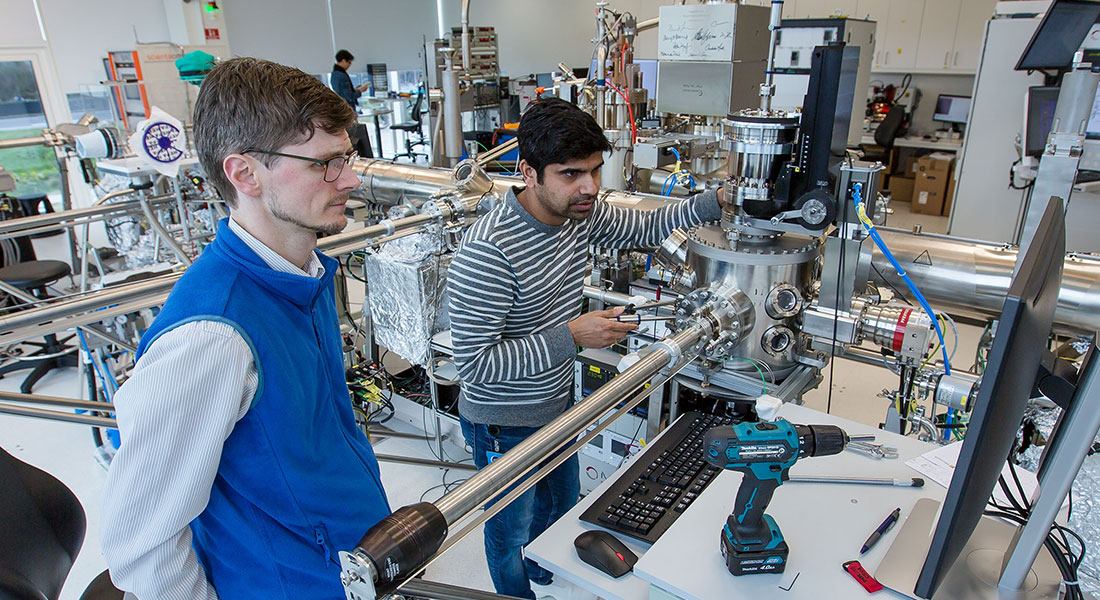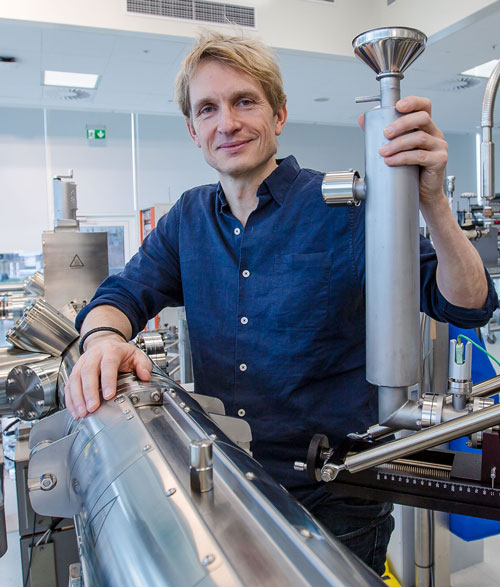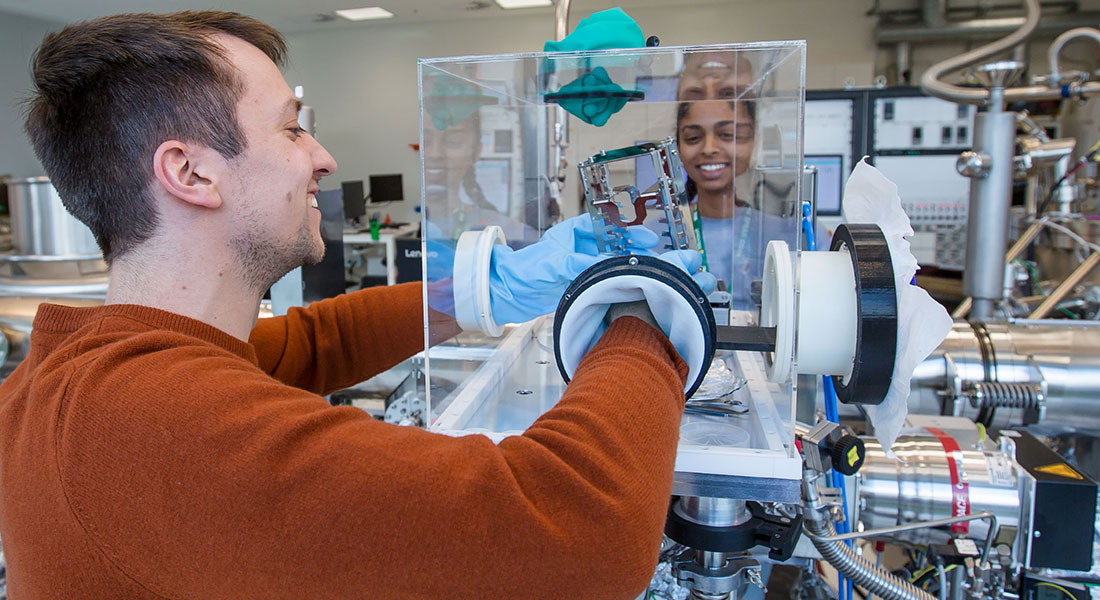Previous Industrial Collaboration: Microsoft Quantum Materials Lab
The collaboration between Microsoft and the Niels Bohr Institute was a long-term strategic partnership that was formalized in 2017 by the establishment of the Microsoft Quantum Lab Copenhagen with Professor Charles Marcus as Scientific Director.

The center was based at the Centre for Quantum Devices (QDev) at the University of Copenhagen. The partnership expanded in 2019 with the establishment of the Microsoft Quantum Materials Lab with Professor Peter Krogstrup as Scientific Director. The new center had DTU as partner and the research facilities are placed at the Microsoft location in Lyngby.
The Copenhagen centers are part of five prestigious experimental Microsoft Quantum Lab sites in the world, alongside Purdue University in the United States, Santa Barbara, Delft University of Technology in the Netherlands, and the University of Sydney in Australia.
The aim is to build the world’s first scalable quantum computer
Computers based on quantum technology have the potential to solve and execute complex mathematical calculations much faster than any existing computer built with ordinary bits. Bits that are based on quantum particles, known as qubits, will, when stabilized and integrated into a computer, generate unprecedented performance. This will translate into the ability to create significant opportunities and tackle pressing challenges like global warming, material and drug design, IT security and encryption, and more.

Peter Krogstrup was head of the Microsoft Quantum Materials Lab in Lyngby.
The approach for building a quantum computer is topological. It is the assumption that a topological approach will have advantages compared with alternative approaches. The researchers will strive to be able to examine whether topological states can be the basis of quantum computing and turn out to be vastly advantagous compared to alternative forms of qubits.
The research on this area is still on a very early stage however the perspectives are huge. “When we know that the topological character of these quantum states gives us some computational power, and once we show that the qubits that we make have a longer lifetime than other bits, the next step will be to build a qubit and study its coherence time and to show how the topological character extends the lifetime” says Professor Charles Marcus.
The world’s first scalable quantum computer
The Microsoft Quantum Materials Lab in Lyngby aims to build the materials for the physical platform for the world’s first scalable quantum computer.
“The challenge is that the quantum states used for the actual calculations are extremely fragile and difficult to sustain and read off. That’s one of the things that we are now able to investigate further here in Denmark, and hopefully it will lead to a global breakthrough” says professor Peter Krogstrup.
Some of the advances of the Copenhagen collaboration are within materials science. The temperature is for example particularly decisive for the quantum states, and therefore the computer itself must be cooled down to absolute zero. Another example is that the materials in which the quantum states are located must be perfect. Not an atom can be misplaced – literally and some materials seem more applicable to contain the qubits than others.

Contact
Peter Krogstrup, Professor
Email krogstrup@nbi.ku.dk
Phone: +45 26 71 51 91
